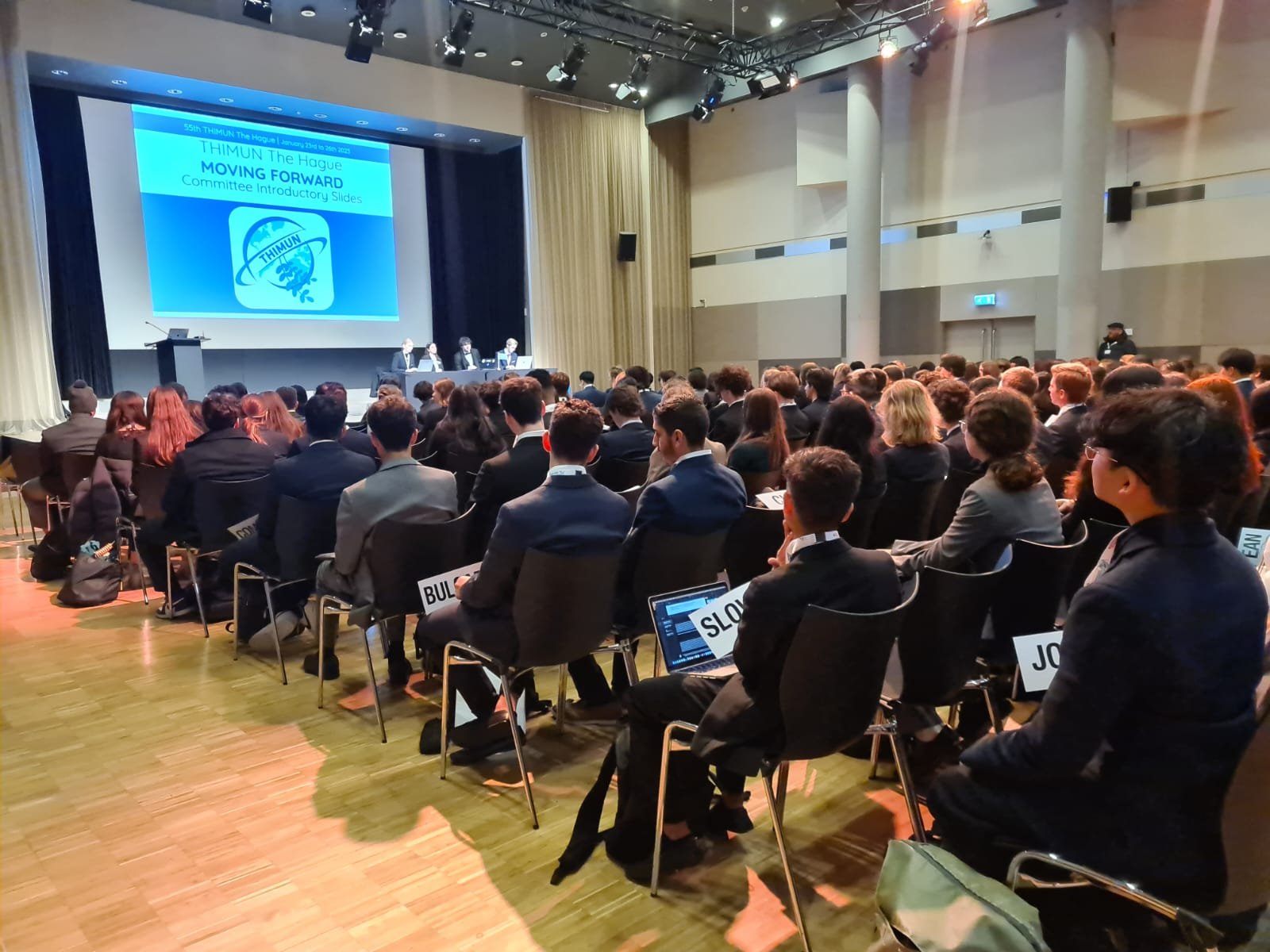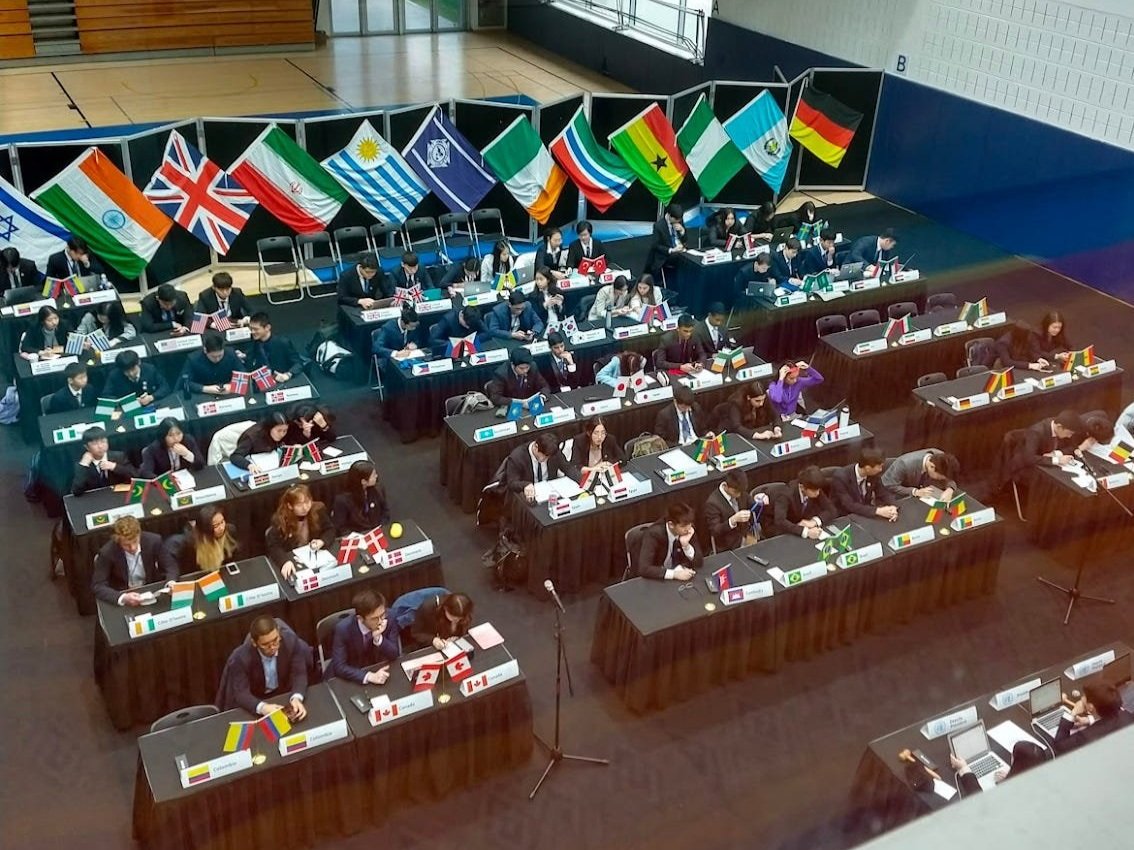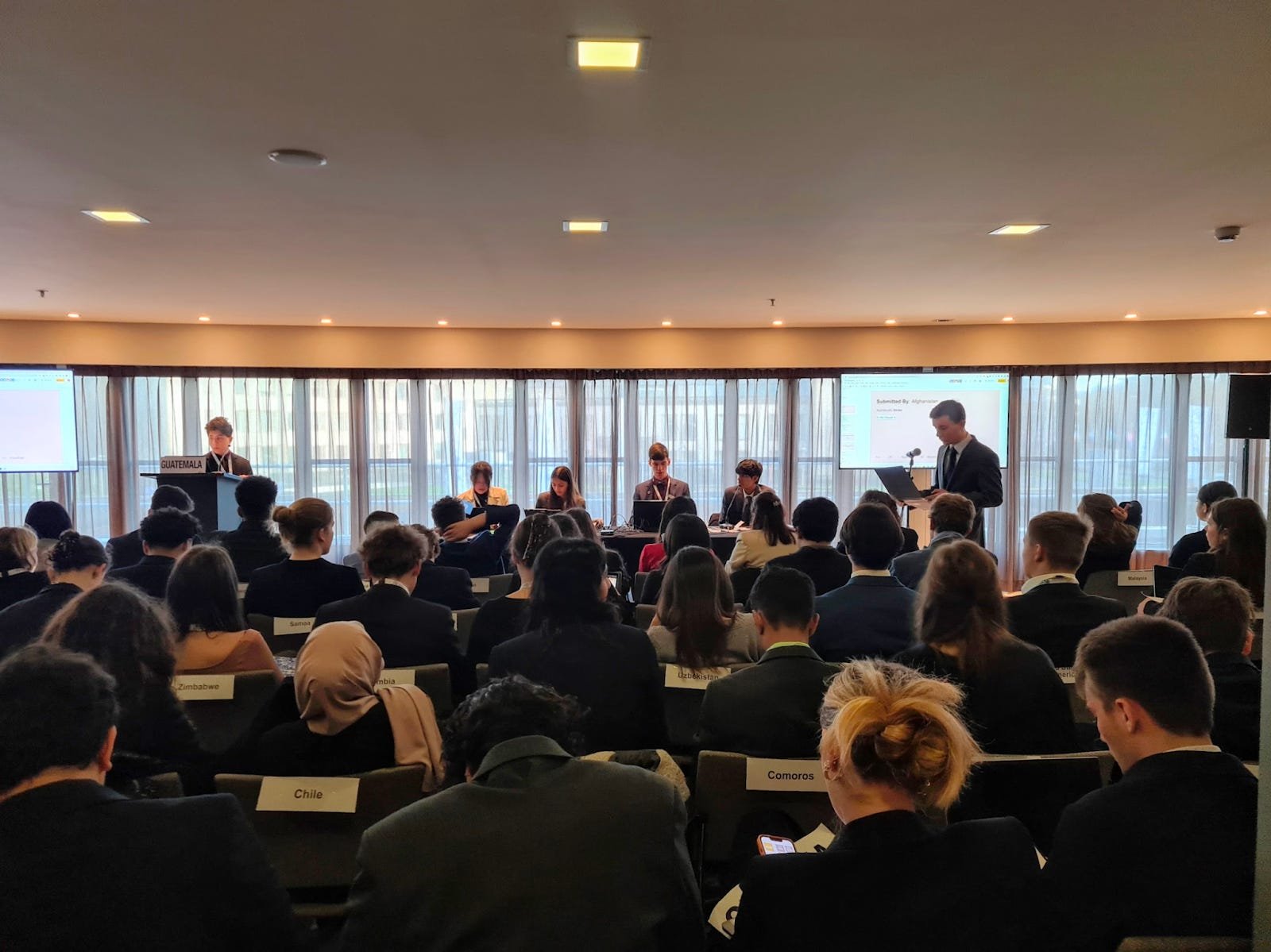We were nearly stranded in China when the first wave of Covid lockdowns hit in January 2020. I was chaperoning a group of students in Shanghai at a Model UN Conference. At the conclusion of the four days of resolution writing and debate, we flew home on January 21. We just made it out. I wrote this piece on January 23, after getting back to Abu Dhabi, praising Shanghai dumplings and talking smack about high school debate. Unbeknownst to any of us, that same day the first Covid lockdowns began in Wuhan. Within a few weeks everything everywhere had closed. You know the rest of that story.
The ECOSOC Committee (United Nations Economic and Social Council) in January 2020 at Concordia International School’s CISMUN Conference
Since the pandemic began, my students have been doing their Model United Nations Conferences and debates online. That doesn't sound like a big deal but it really, really is. Imagine going through a full day of school—sometimes in person, often online—then logging on to debate a policy paper you wrote on refugee resettlement with kids in Karachi, Singapore and Seoul, deep into the evening hours. They’re digital natives but I wouldn’t wish that much screen time on my enemies. It was an insane ask of them and one they met.
Throughout the three year pandemic period, our club naturally shrank. But the students who remain are deeply committed and now seasoned delegates. So, from the moment the UAE government announced they were lifting all Covid restrictions on November 6, students in our Model UN Club have been full speed ahead to the THIMUN Conference in the Hague. The conference is massive: 3,200 delegates and advisors from over 200 schools. The conference was held at the World Forum. The building is on a sprawling campus, bracketed by the UN International Criminal Tribunal, the Organisation for the Prohibition of Chemical Weapons, and the Europol HQ. During the conference, I spent hours circulating to the various committees where my students were debating. In the times between, I got to chop it up with teachers from London, Rome, Cairo, Tashkent, Athens, and Kaiserslautern.
The delegates in Environment Commission I, on the last day of debate
Longtime readers know that I am short (betting against) the near-term future, but long (betting for) the kids and their longer-term future. Each time I walked into the sessions in the Hague (with the exception of the chaos that went down in General Assembly I), I was reminded of why my sentiments about both—the near-future and long-term future—are so stark. It’s heartening to see students from all over the world engaging in complex arguments, many in their second (or third or fourth languages) about disarmament, territorial disputes, human rights, environmental conservation, and myriad other topics. At the same time, I couldn’t help contrasting these delegates and their nimble thinking and commitment to making the best possible policy to the absolute Muppet Show of politics back home. Literally, we’d be better served by having one hundred randomly selected delegates from a conference like this sitting in the US Senate than the collection of fossilized culture warriors who occupy the North Wing of the US Capitol. I would trade Chuck Grassley for a random Jordanian teenager any day of the week.
This was a great experience for the students and for me. I got to spend some time wandering the streets of the Hague and taking in some of the sights. Although Hope and I have tramped our way around Europe, I’ve never been to the Netherlands. All the stereotypes about the Dutch speaking perfect English and being impervious to cold weather are spot on. Three plus years in the Gulf have softened me to how brutal a ten minute walk in two degree weather can be, while these fools were dining al fresco with their toddlers.
We have one more conference scheduled for this year. But it's almost a home game, a smaller conference (800 delegates) at Dubai International Academy in the spring. It feels good to know that our next conference experience will be in a few months rather than years.



